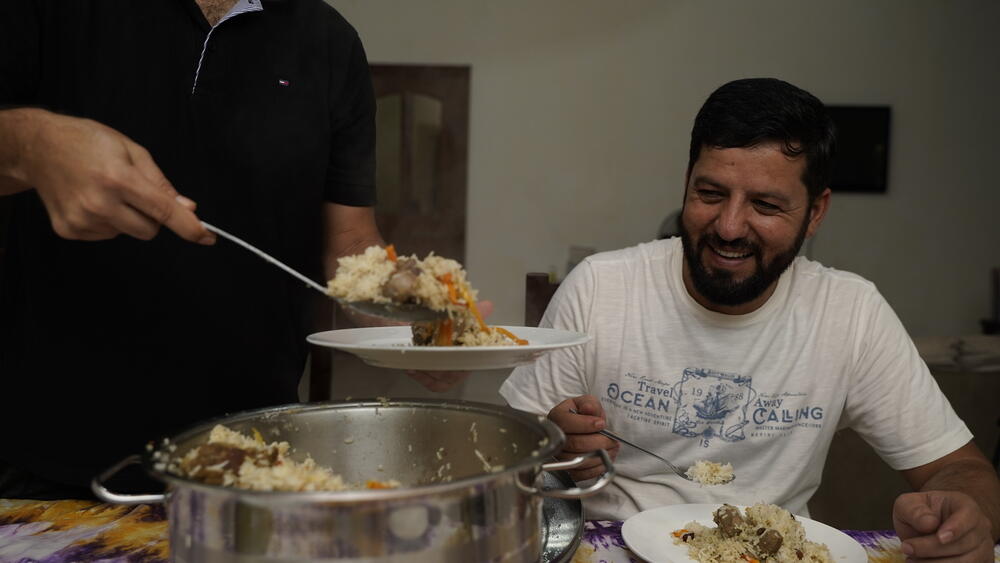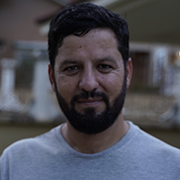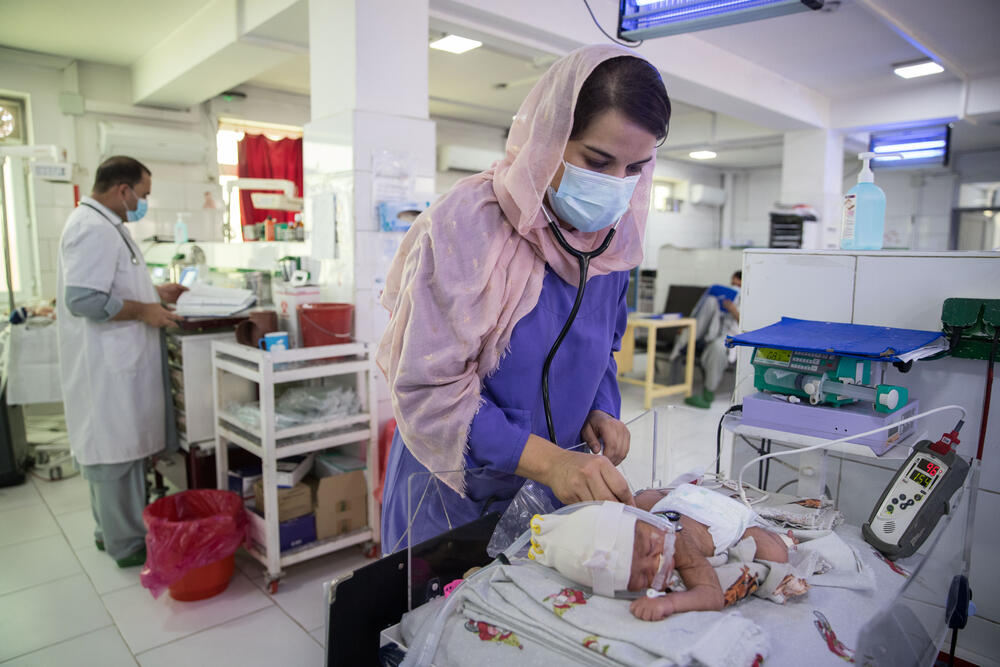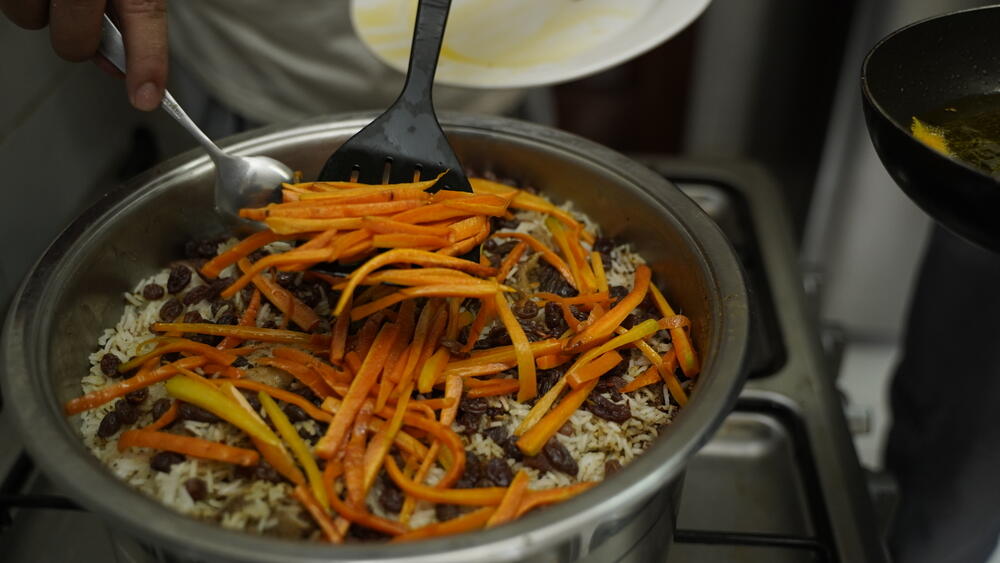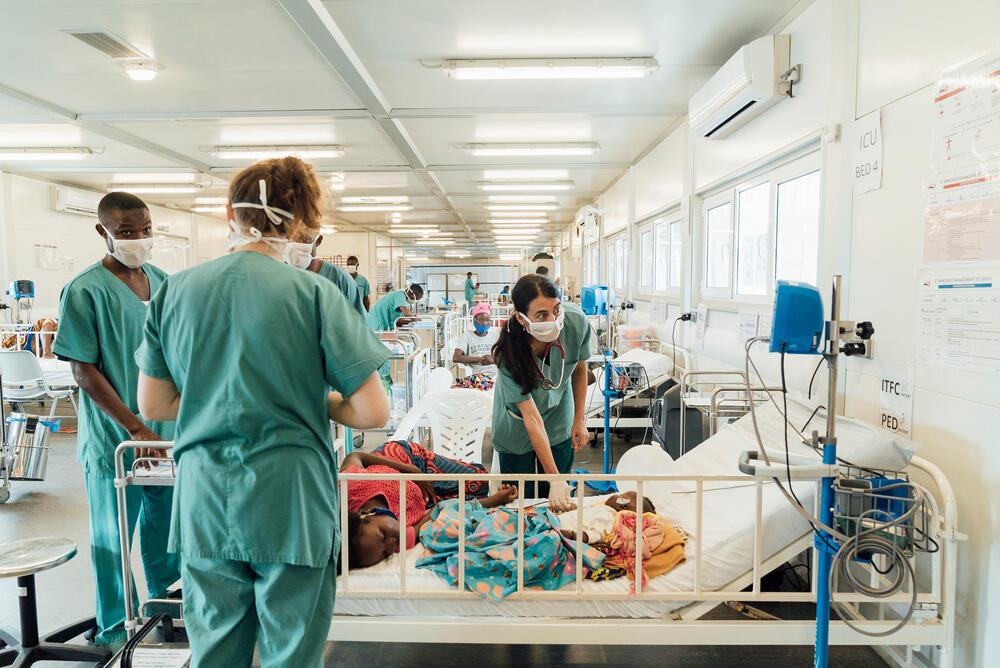Staff story: "My five daughters were born in an MSF hospital"
Arif Sohail is a supply team leader in Sierra Leone, working to ensure that medics have the medicines and equipment they need to save lives.
However, his story with Médecins Sans Frontières / Doctors Without Borders (MSF) started much closer to home in Afghanistan. From welcoming children to learning to cook, here Arif shares how MSF has become part of his family.
When I took my first job abroad with MSF, I knew there would be lots of things to learn.
In any new assignment, there are local medical needs, ways of working and different systems. But there was also something else: I decided to learn how to cook.
I am originally from Khost, in the southeastern part of Afghanistan. I was born in 1988, into a big extended family of 27 people. Throughout almost all of my life, fighting has been ongoing in my country.
“All of my children were born in the MSF hospital… before I even joined the team, MSF was already part of my family”
When I was in my early 20s, I got a job in the supply team at the maternity hospital in Khost, which is one of MSF’s busiest worldwide.
The needs are huge: in the first six months of this year alone around 10,000 women gave birth there.
I quickly learned that the supply team plays a key role in a medical humanitarian organisation like MSF.
It’s about making sure that all the goods, medical equipment, logistic materials, everything, arrive on time. So, if a surgeon needs a scalpel, or a premature baby needs oxygen, there’s no delay.
That’s how we support medical activities and help save lives.
Never miss an update
Get the latest personal accounts from MSF staff with our email newsletter, Frontline.
You'll also receive our best stories, critical updates and unique ways to get involved.
Five daughters
I’m a father of five daughters, the oldest is nearly 12 and the youngest is nearly two. Four of them go to school and the youngest is not yet school-age.
All of my children were born in the MSF hospital in Khost, so before I even joined the team, MSF was already part of my family.
Like other Afghans, we’ve endured difficult situations because of the consecutive wars. Compared to other provinces, life in Khost is better in terms of security and the economy, however many people have left to work abroad and send money to support their families.
As a father, it’s my responsibility to support my girls to study, have a good life and be an example of good, educated girls in the community.
So, I too left Afghanistan to support my family.
But, working with MSF means I also have the opportunity to help others facing difficult circumstances, extend my professional experience and learn more about different cultures and communities.
Wherever the need is greatest
After working in the maternity hospital in Khost, I was promoted to warehouse advisor at the MSF headquarters in Kabul.
Then, a short trip to support the MSF team in Nigeria inspired me to apply in 2019 for my first full assignment abroad: warehouse manager in Sierra Leone.
Next, I worked in the MSF Regional Supply Centre in Nairobi, Kenya, helping to send supplies and equipment to teams working in 14 countries, from established hospitals to acute emergencies.
"Being away from our beloved families is not easy. We try to support each other, and one way is to cook something and share it with the team."
Right now, I’m back in Sierra Leone, where I am now responsible for the whole supply chain, warehouse, procurement, customs and transport for MSF’s work in the country.
MSF has worked here in Sierra Leone for 35 years. We’re currently focusing on getting medical care to mothers and children, and treating tuberculosis.
Home comforts
Working abroad, I miss my family, friends, and Afghanistan in general. I follow the situation there closely.
I also miss the cooking.
Most of the men in Afghanistan don’t know how to cook. So, going abroad for the first time, I struggled with food.
But, since I’m now away regularly, I’ve been trying my best to learn from YouTube and my MSF colleagues. Being away from our beloved families is not easy. We try to support each other, and one way is to cook something and share it with the team.
Kabuli Pulao is an Afghan rice dish that I recently cooked for my team in Sierra Leone
Ingredients
- 4 cups long-grain basmati rice
- 1 cup sesame oil (or any other oil)
- 2 large onions
- 1 kg goat/beef/lamb meat
- 1 tbsp salt
- 1 tbsp cumin
- 4 cups water
- 4 carrots
- 1 cup flame/red raisins
Method
- Wash the rice and soak in cold water for three hours
- Slice two large onions
- Heat one cup of oil in a large deep-sided pan and fry the onions for five minutes
- Add the meat to the pan, add salt to taste
- Add 1 tablespoon cumin seeds
- Fry for 10 minutes
- Add four cups of hot water. Cover with a lid and cook on medium heat for 45 minutes until the meat is tender.
- Meanwhile finely slice the carrots
- Remove the pan from the heat. Keeping the meat in the pan, take half the soaked rice and spread it on top to form a smooth layer, covering the meat completely. Then add the carrots and one cup of raisins and spread them out. Finally spread over the rest of the rice as the final layer.
- Add enough hot water to ensure that the rice is covered by about half an inch – around two cups’ worth.
- Wrap the lid of the pan in a clean tea towel. Secure carefully and use to cover the pan.
- Return to a low-medium heat for 45 minutes until all the water is absorbed.
- Enjoy
When I go home, I occasionally do the cooking as well. My wife is always surprised when she sees me in the kitchen! I also love getting outside, and even a game of badminton helps us come together and manage stress.
No normal
I now have almost ten years of experience working in supply chain management in different positions and different countries with MSF.
One thing I’ve learned: there is no ‘normal’.
Sometimes a sudden emergency means an influx of people needing care and lots of urgent requests for supplies.
Sometimes we have challenges with importing potentially life-saving equipment, or prices fluctuate, or we have to ensure items purchased from local markets meet MSF standards.
In Sierra Leone, this year we have worked on 95 international freight shipments via air, sea and land. All bringing with them the materials our medical teams need to care for our patients.
It gives me extra energy and motivation to be part of an organisation standing by people at times when they need it most.
MSF in Sierra Leone
After the devastating 2014-16 outbreak, Sierra Leone was finally declared Ebola-free on 17 March 2016 and is now working to rebuild its shattered health system.
MSF teams work in hospitals, primary health facilities and in the community to increase access to healthcare, fill gaps in the provision of essential medicines, and help develop the country’s health workforce.
